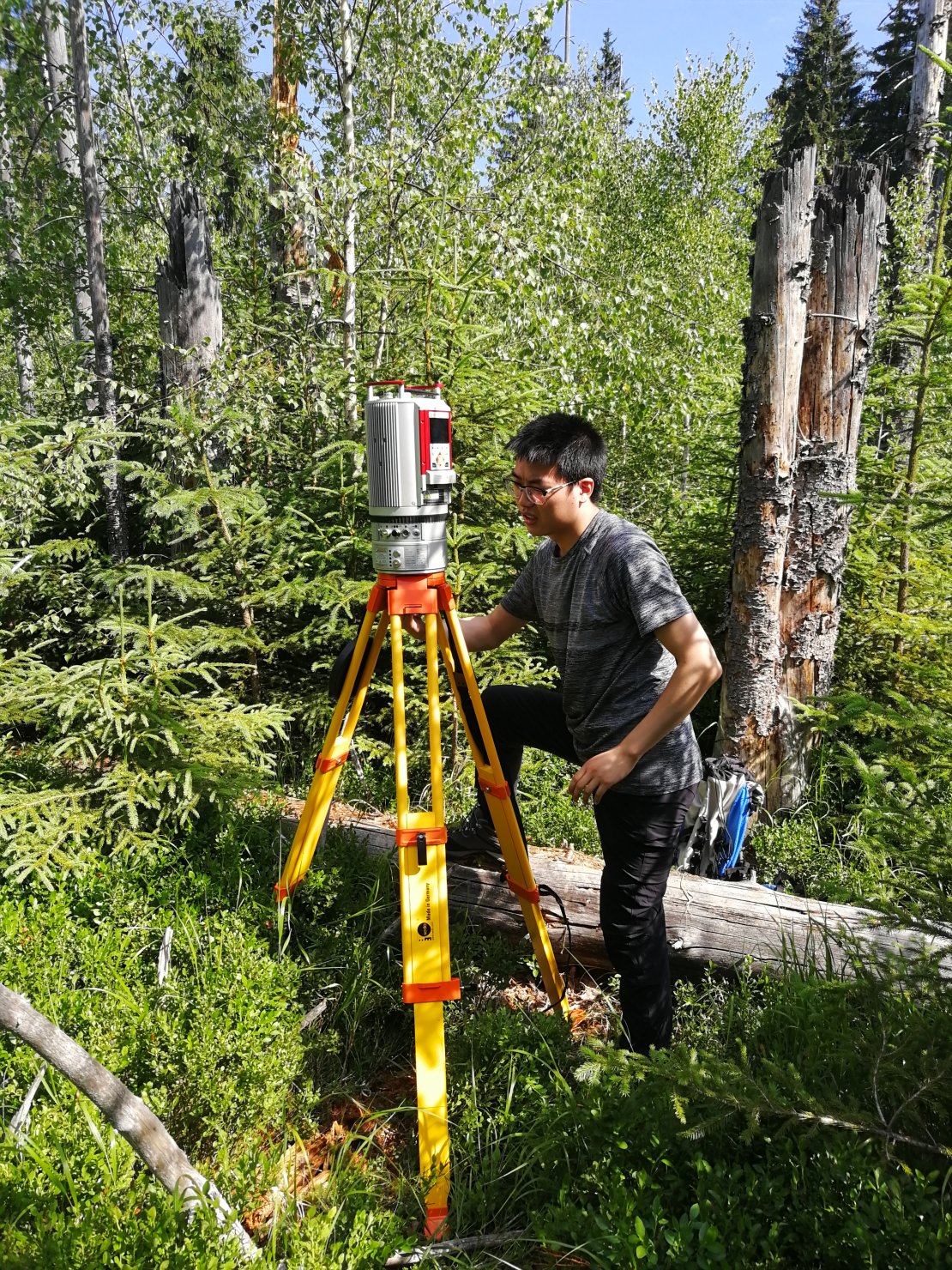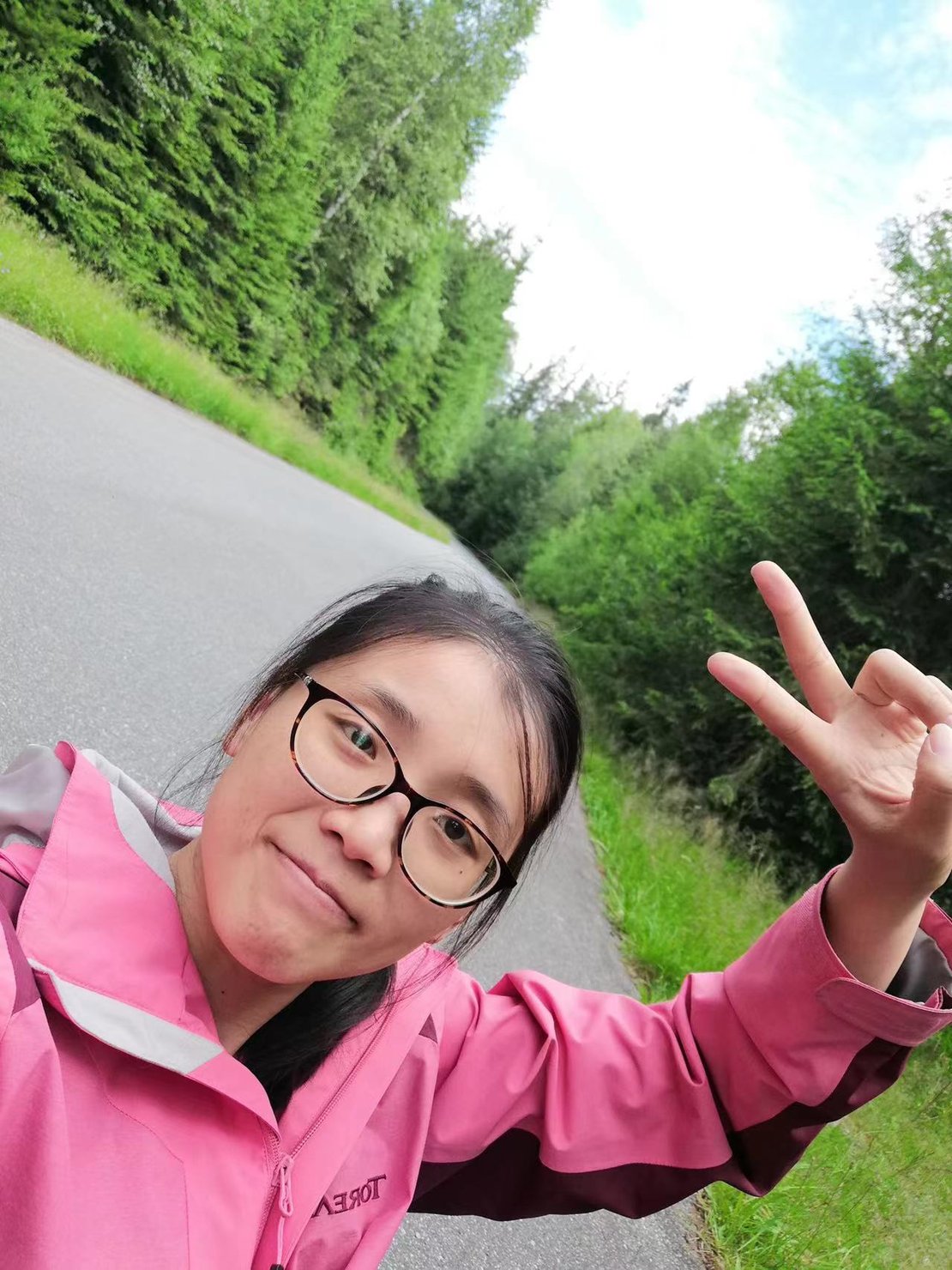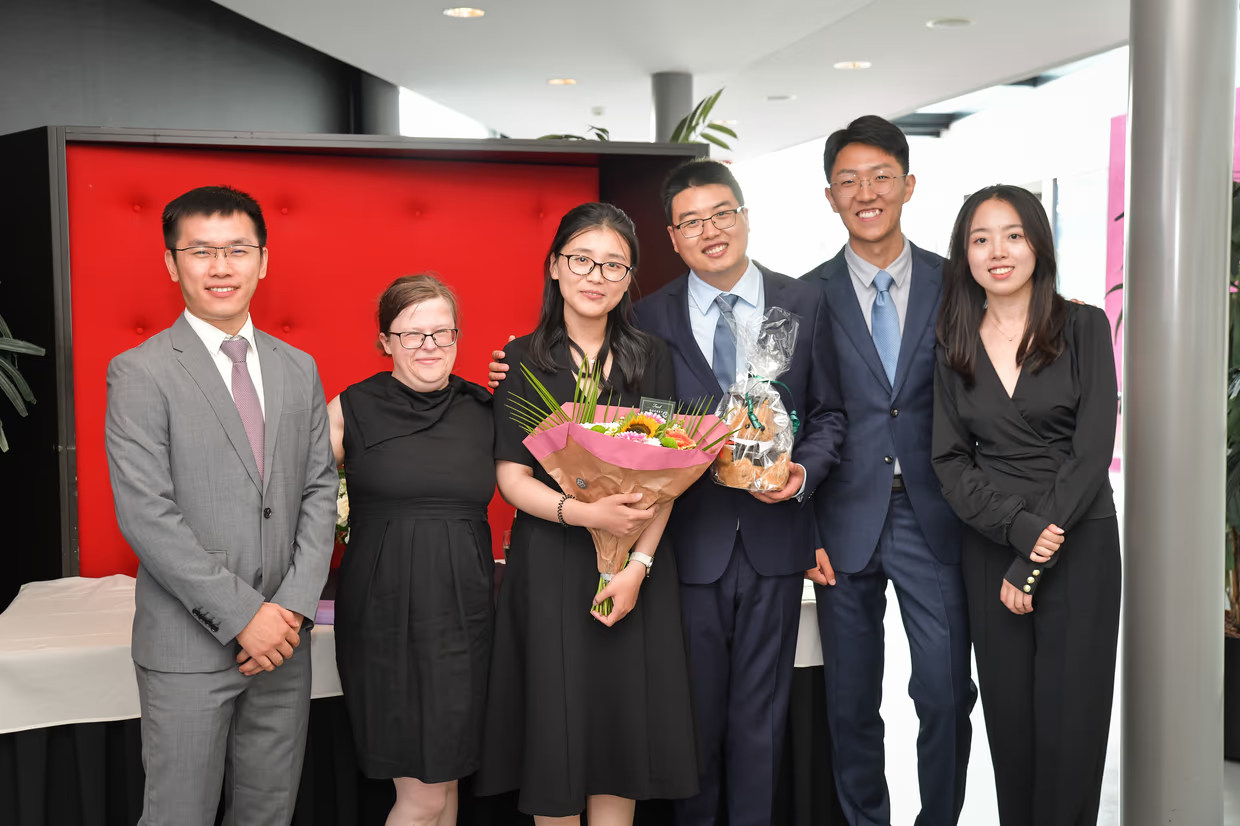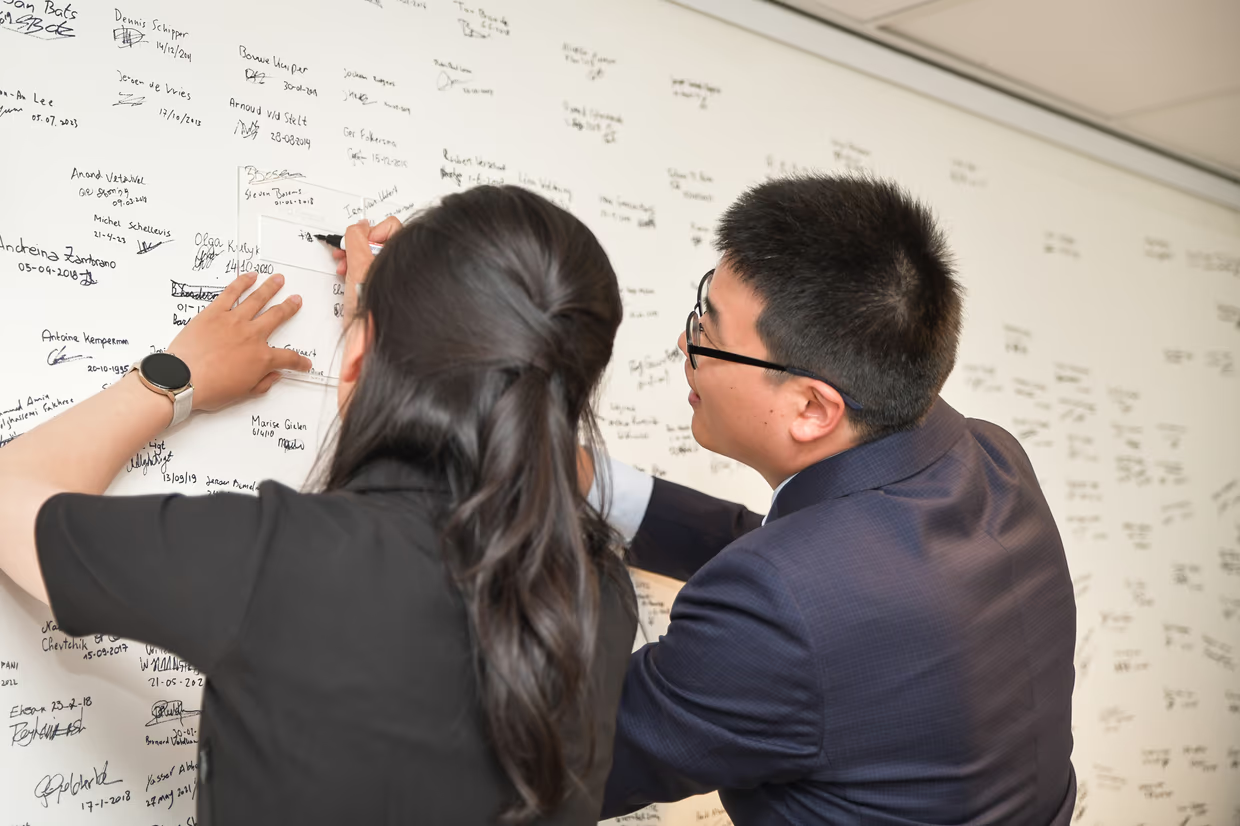Haili Yu and Xin Zong arrived together to start their PhD at the ITC Faculty of Geo-Information Science and Earth Observation 4 years ago. They also left and celebrated together their PhD defence on the 10th of July of 2023, when both finally became doctors and Xin Zong was rewarded with a cum laude.
In this edition of Made in NRS, we had a conversation with Haili and Xin to discover their story; how they experienced the process of arriving at Enschede, achieving their PhD together and the amazing work they produced during these years.
How did you first come in contact with the ITC Faculty?
Xin: After I achieved my MSc in China, I decided to continue in the academy by applying for a PhD candidature. I really enjoy academic research, so that felt like a natural next step for me. During the search for my future PhD in remote sensing, I sent an application to Professor Andrew Skidmore and Associate Professor Tiejun Wang who were interested in working with me in this PhD. By coincidence, Tiejun was at a conference in Beijing, so we scheduled an appointment at his hotel.
Haili: I went with Xin to the appointment, but I expected Xin and Tiejun to have the meeting without me. However, Tiejun invited me in and asked me about my background and publications.
Xin: He gave us really good advice: “Why don’t you come together to the ITC Faculty? A PhD can be a long journey, so it would be better if you do it together”. After that we started the application procedure and, with the help of a scholarship from the Chinese government, we had the opportunity to start a PhD together at the ITC Faculty.
What are your academic backgrounds?
Xin: I have a background focused on remote sensing and Haili’s background is more focused on ecology. Tiejun Wang and Andrew Skidmore are both outstanding scholars, not only in remote sensing, but also in ecological modelling and geoscience, so we both fit into their projects. The ITC Faculty is a great international institution in these areas and provided us with expert guidance and navigation during our PhDs.
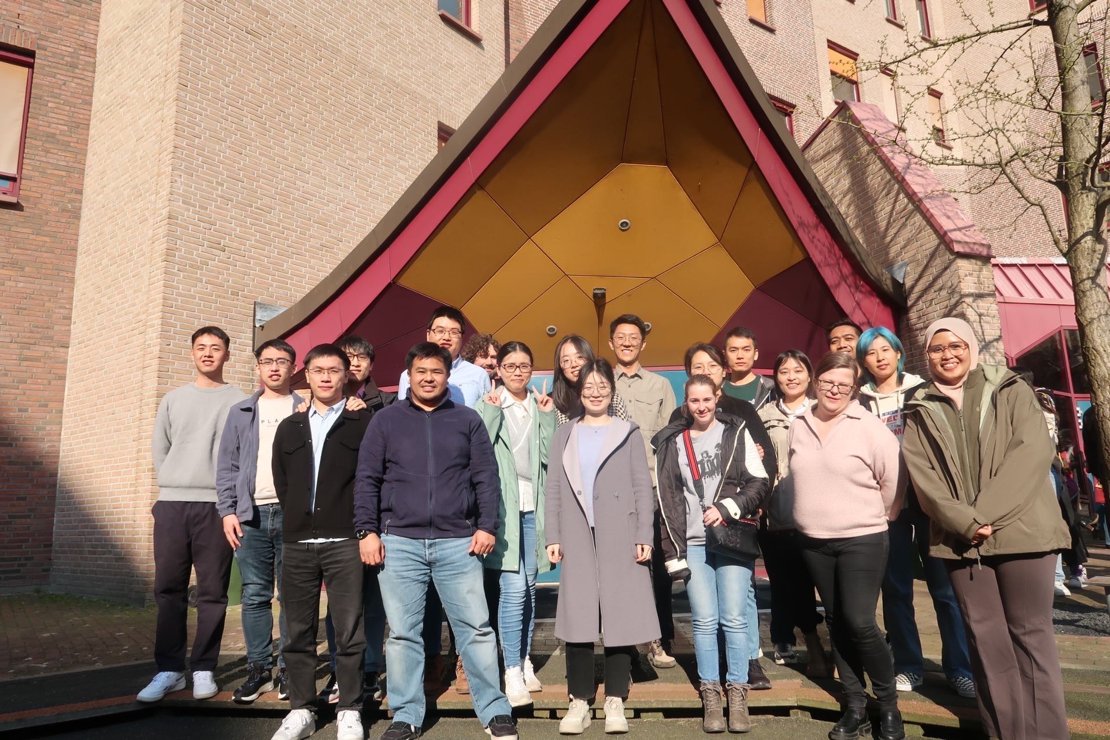
Haili and Xin pose with colleagues in front of the former ITC building
How was the process of moving away, and experiencing a different country such as the Netherlands with a different culture?
Haili: I remember the first day we arrived at Enschede. It was Saturday, so we visited the supermarket and tried the typical Dutch fried fish. We liked it and didn’t feel like strangers. People are generally very nice and welcoming.
Xin: The culture in the Netherlands is quite open and international. We didn’t find many difficulties to fit within the work environment and the life in Enschede. We also found a Chinese MSc and PhD community in Enschede.
Haili: Even before arriving, Tiejun and other people provided us with guidance about Enschede. We were very lucky to have them.
Achieving a PhD is quite an academic challenge. How did you experience that process together?
Xin: Pursuing a PhD is a tough journey with not much relaxation. It was lucky for us to have each other for support. It is as if we always had a work partner to discuss any pressures or difficulties we met.
Haili: Additionally, our backgrounds are not the same, so we could discuss some topics from different points of view. Xin’s background is more technical, while I could provide a theoretical perspective.
|
|
Pictures taken during a fieldwork trip
What were the topics of your PhD?
Xin: For my PhD candidature I investigated how viewshed can affect the spatial behaviour and habitat selection of animals taking red deer as the specific target species. “Viewshed” is the scientific jargon we use to describe the space that is visible to animals from within their landscape. This is very important for animals such as the red deer, as it influences their behaviour. They use their viewshed to avoid predators and stay safe in the forests.
During my PhD, we used LiDAR technology to quantify the three-dimensional viewshed of these deer in forest locations. Then, we generated a viewshed map across the landscape level to investigate its relationship with how deer collect visual information and avoid being seen by predators. With that data, we can investigate how viewshed affects the behaviour of red deer due to human disturbances.
Haili: During my PhD, I used open-source biodiversity data to study macrofungal diversity and distribution in Europe. In Europe, especially nowadays, there is an increase of open-source data, for example from citizen science and even museums. That data has invaluable information about species distribution, and we have been able to gather it from 8 different European countries, such as Sweden, Norway, Denmark, Finland, the Netherlands, Germany, France and Spain.
We used a technique called species distribution modelling to combine the open-access environmental data produced using geoinformation science and remote sensing, with the open-source biodiversity data into a model. This models the distribution pattern of macrofungal diversity in Europe, aiming to find the determining factors of macrofungal distribution and establish predictions for a future with climate change. There are already many studies conducted for modelling the diversity patterns of animals of plants, but few with macrofungi, so we aimed to fill this knowledge gap.
Read Haili Yu’s and Xin Zong’s work:
Xin, you achieved a cum laude in your PhD. How did you feel when you found out?
Xin: It was a big, big surprise, totally unexpected for me. I still remember when I finished the PhD defence and Professor Skidmore told me the news. Without the support from Professor Skidmore and Associate Professor Wang, I would not have achieved it, so I would like to thank both of them for their guidance and navigation.
Haili and Xin successfully defended their PhD on the same day, July 10th 2023
Now that your PhD is finished… what are your plans for the future?
Xin: We applied for a job in China, both at the same university and the same department. We hope to continue our academic career together at a university.
Haili: We want to continue in the academic world, applying what we have learned at the ITC to conduct further ecological research in China.


